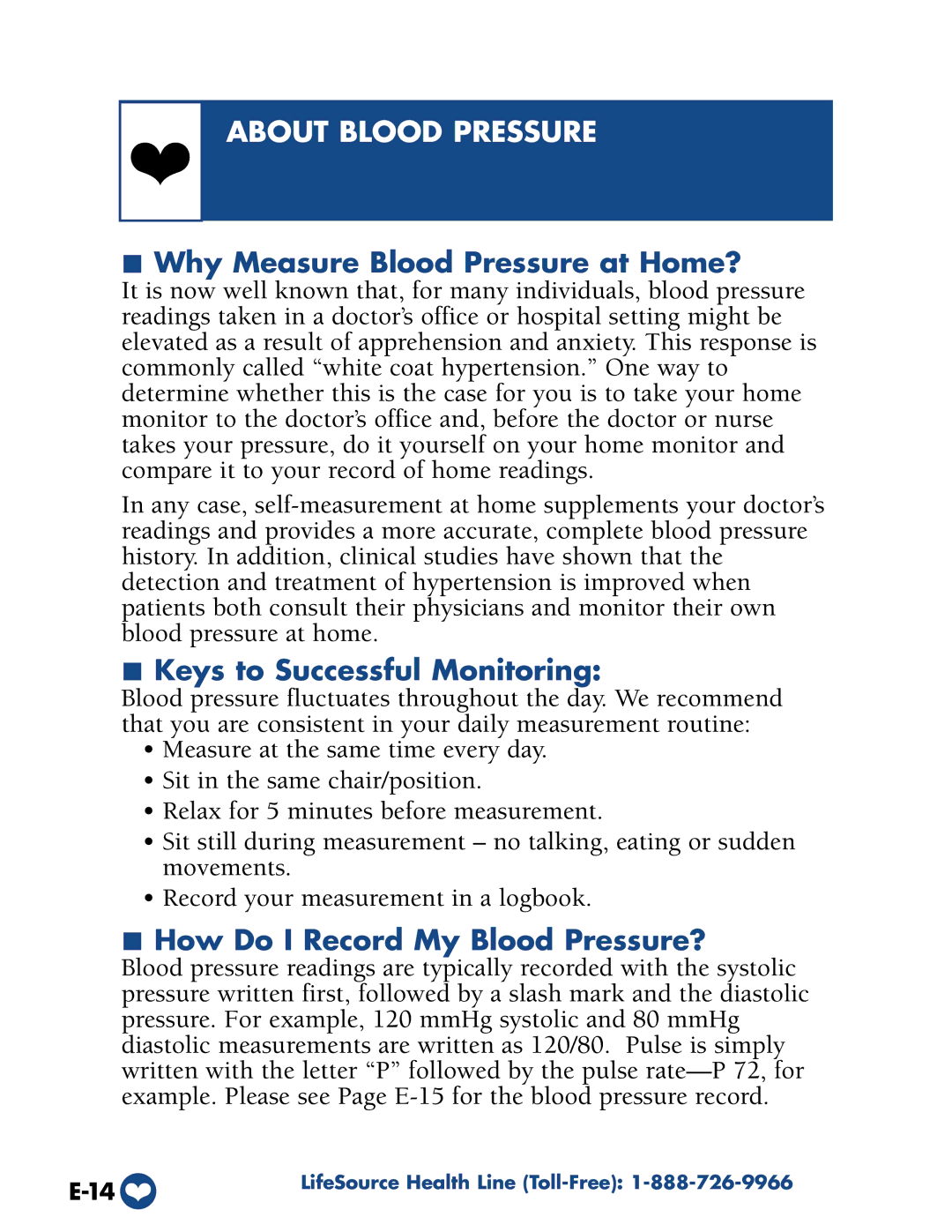
❤
ABOUT BLOOD PRESSURE
 Why Measure Blood Pressure at Home?
Why Measure Blood Pressure at Home?
It is now well known that, for many individuals, blood pressure readings taken in a doctor’s office or hospital setting might be elevated as a result of apprehension and anxiety. This response is commonly called “white coat hypertension.” One way to determine whether this is the case for you is to take your home monitor to the doctor’s office and, before the doctor or nurse takes your pressure, do it yourself on your home monitor and compare it to your record of home readings.
In any case,
 Keys to Successful Monitoring:
Keys to Successful Monitoring:
Blood pressure fluctuates throughout the day. We recommend that you are consistent in your daily measurement routine:
•Measure at the same time every day.
•Sit in the same chair/position.
•Relax for 5 minutes before measurement.
•Sit still during measurement – no talking, eating or sudden movements.
•Record your measurement in a logbook.
 How Do I Record My Blood Pressure?
How Do I Record My Blood Pressure?
Blood pressure readings are typically recorded with the systolic pressure written first, followed by a slash mark and the diastolic pressure. For example, 120 mmHg systolic and 80 mmHg diastolic measurements are written as 120/80. Pulse is simply written with the letter “P” followed by the pulse
